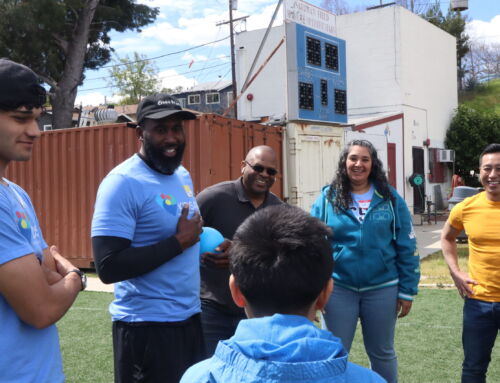
Black children are dramatically overrepresented in foster care in the United States. Although they make up only 14% of all children., they represent 22% of those in foster care. This happens for many reasons, such as systemic racism, high levels of poverty, and lack of community investment. Unfortunately, Black children in foster care also face more significant challenges in finding a permanent home through adoption compared to children from other races.
These numbers show that something needs to change. One way we can help and make a difference in their lives is through allyship. Being an ally means standing by these children, taking the time to understand their struggles, and working to create a fairer and more supportive system for them. By being informed and caring, we can help make sure that every child has a chance to grow up in a safe and loving home.
Steps to Be an Ally:
Educate Yourself
- Explore: Read books and articles or watch documentaries about the lives and challenges of Black children in foster care.
- Listen: Pay attention to the stories shared by Black children and families in the foster care system. Their experiences will give you a deeper understanding of what they experience.
Reflect on Your Own Privilege:
- Acknowledge: Recognize how your background might give you advantages others don’t have. It’s important to recognize this so you can be more understanding and supportive.
- Challenge Your Biases: Be honest with yourself about any biases or stereotypes you might hold. Work on recognizing and overcoming them to treat everyone fairly.
Speak Up When It Matters
- Use Your Voice: If you see or hear something unfair or hurtful, speak up against it. Standing up for others can make a big difference.
- Lift Others: Help share the stories and voices of Black children and families in foster care. Use your platform to make sure they are heard.
Support and Stand with Marginalized Groups
- Be an Advocate: Support policies and actions that promote fairness and justice for everyone. Advocate for changes that benefit Black children in foster care.
- Give Your Time and Resources: Volunteer, donate, or support organizations that work toward social justice and equality, especially those helping Black children in foster care.
Show Up
- Participate: Go to rallies, marches, and community events that support marginalized communities. Your presence shows that you care.
- Be Consistent: Don’t just show up when it’s popular; continue to support these causes over time, even when they’re not in the spotlight.
Promote Inclusivity
- Create Inclusive Spaces: Make sure everyone feels welcome and valued in any group or space you’re a part of.
- Support Diverse Voices: Ensure that Black children and families have a say in decisions that affect them. Help make sure their voices are centered and respected.
Being an ally for Black children in foster care isn’t a one-time action; it’s about making a long-term commitment to support and uplift them. True allyship means dedicating yourself to ongoing education, actively using your voice to advocate for them, and consistently standing up for them. This commitment requires you to be informed and engaged in moments of crisis and everyday actions. Doing so contributes to building a fairer and more supportive system where every child is valued and thrives. Your sustained effort can help transform lives and create lasting change.


